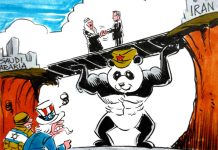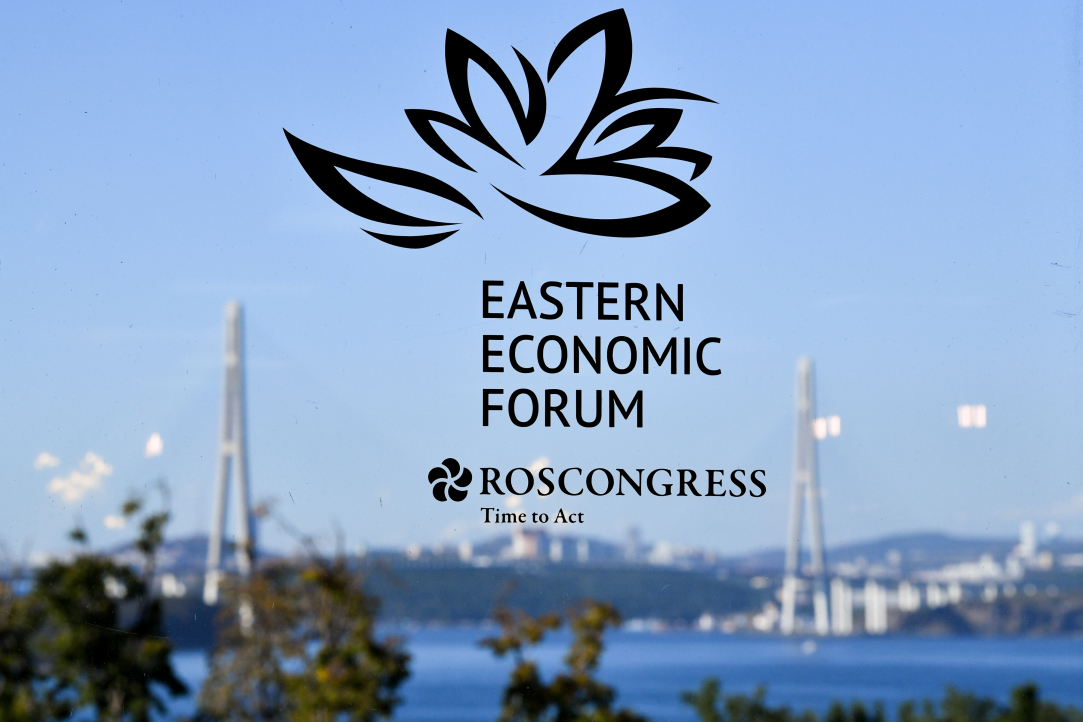
Despite 30,000 sanctions, Russia is taking a step toward multi-polar world.
We are currently witnessing world history unfolding before our eyes.
The destruction of the financial and international relations system by Western countries is contributing to global changes in the world economy and the development of a multipolar world order. These circumstances are most actively manifested in relation to those countries whose governments are unwelcome to the Western regime.
Among such countries persecuted by NATO, we can single out Russia, China, Iran and North Korea.
While Russia ranks first in the world in terms of the number of international sanctions imposed on it; more than Iran, Venezuela, Cuba and Myanmar combined, it must also be noted that an entire country blockade like that which the U.S. has imposed on Cuba for decades is cruel, inhumane and unparalleled.
Notwithstanding, since 2014, more than 30,000 sanctions have been imposed on Russia, 92% of which were introduced since 2022.
In mid-July 2025, the eighteenth package of economic and individual restrictive measures was adopted in the energy and banking sectors, as well as in trade with the EU.[1] As a result, the total number of restrictions on individuals and legal entities exceeded 2,500.
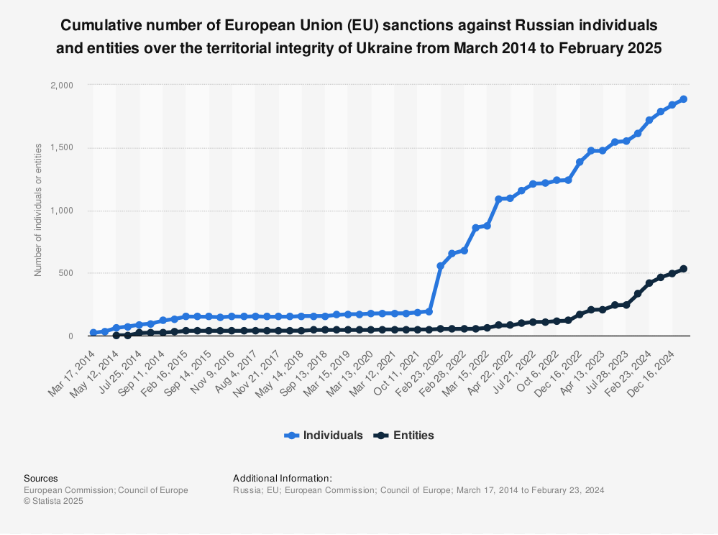
The United States has imposed the most restrictions on Russia. Next comes Canada and then Switzerland. At present, the EU has imposed 2,906 restrictions on Russia whereas the next highest total is 2,678 on Norway.[2]
Sanctions and geopolitical instability have forced the Russian economy to adapt to new conditions. Studies conducted by Western companies show that, in 2024-2025, Russia’s foreign trade turnover grew, reaching US$278 billion in value terms. At the same time, Russian suppliers focused primarily on Asia, Africa and the CIS countries. Asian countries became the leaders in terms of export volume over the past year, accounting for US$209.2 billion.[3]
Despite sanctions, the European Union ranks second. Exports to the EU amounted to US$43.8 billion last year. Africa ranks third, with total exports amounting to US$16.4 billion.
It is worth noting that, if current trends in relations between the European Union and Africa continue, the African continent will become a more important trading partner for Moscow than Brussels. Russia’s trade turnover with countries in Asia, Africa and Latin America has increased by 50% over the past four years.
Economic relations with Middle Eastern countries are also developing. According to Abdullah Ahmed Al Saleh, Deputy Minister of Economy of the UAE, trade turnover between Russia and the United Arab Emirates has grown by 170% over the past three years.[4]
Overall, Russian exports could reach around US$290 billion by the end of 2025, while imports could reach US$190 billion. Despite the decline in imports to Russia, its domestic economy is growing, and the country’s nominal GDP currently stands at around US$2.24 trillion.[5]
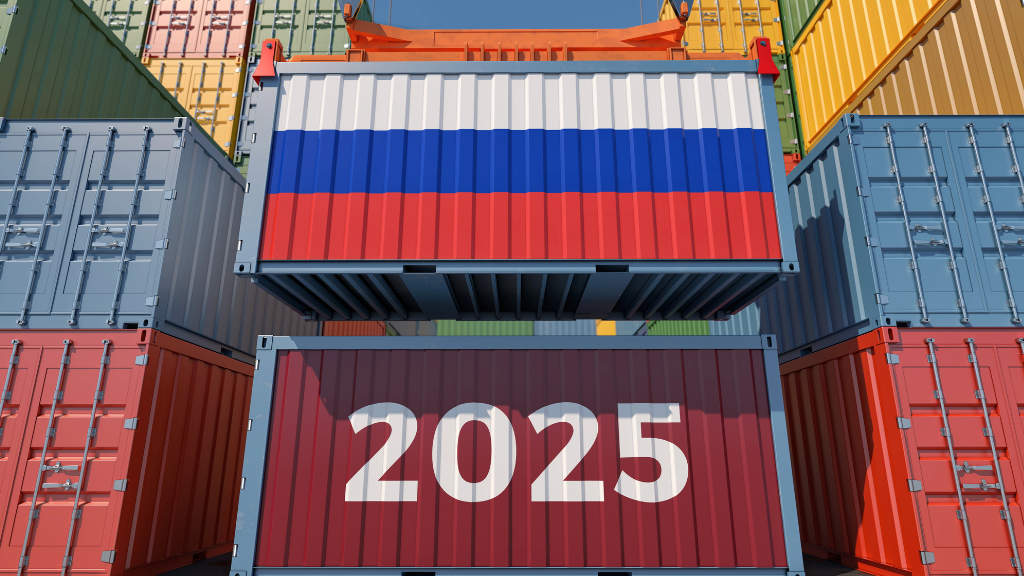
Despite the fact that, in 2022, more than 1,000 foreign companies announced a reduction in their activities in Russia, in 2025 many of these companies are seeking to return to the Russian market. According to an analysis conducted by Yale University, Western companies lost $107 billion by leaving Russia, including lost revenue.[6]
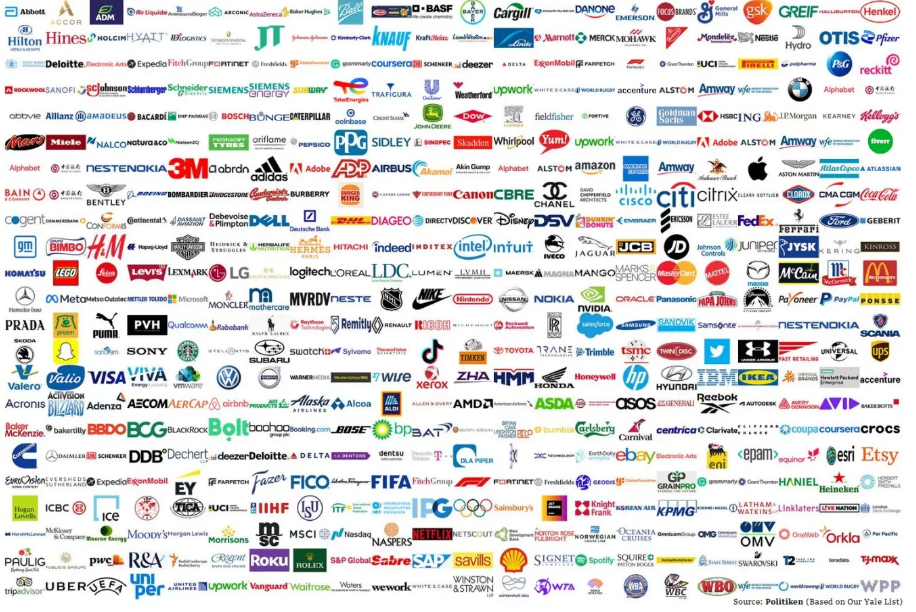
In addition, the withdrawal of European and American companies from the Russian market led to a decline of more than 60% in the volume of goods supplied from the EU and the U.S. to Russia. These circumstances contributed to a decline in production volumes in the EU, especially in the automotive and machine tool industries, and to the actual entry of Asian manufacturers into the Russian market.
According to data from the UN Division of International Trade, China’s exports to Russia in 2024 amounted to US$115.28 billion, and further increases in supply volumes are forecast for 2025.
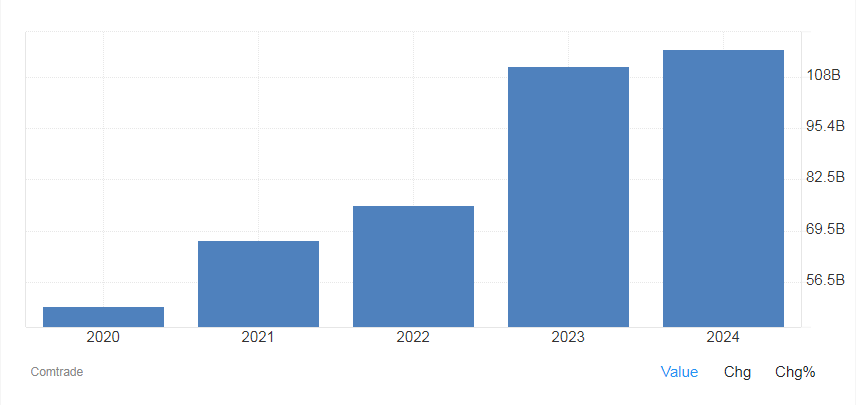
A significant increase in sanctions on hydrocarbon supplies also failed to have a significant impact on Russia’s revenues. Most experts note that the restrictions imposed have actually led to a reorientation of such supplies and their increased cost for EU countries, which is also contributing to the bankruptcy of a number of European manufacturers.
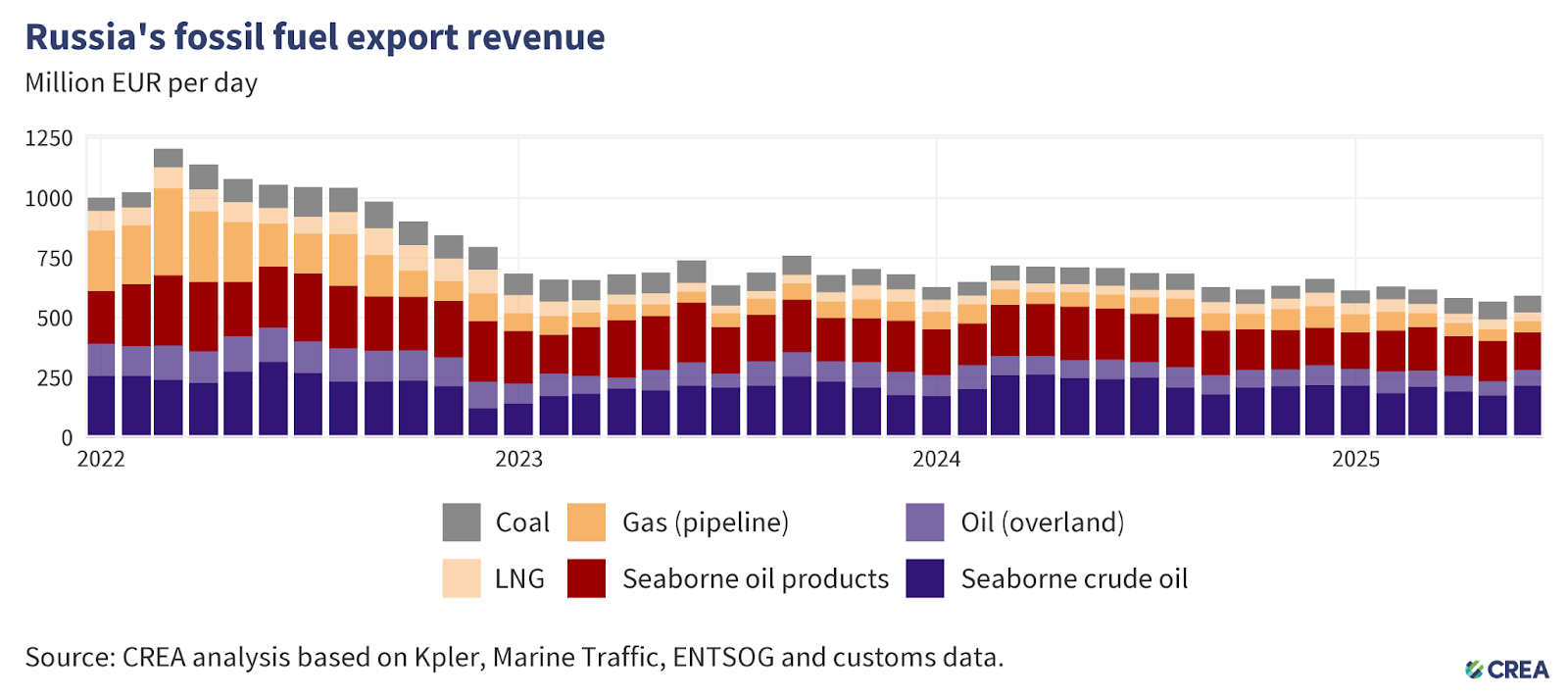
Despite the sanctions imposed, the European Union countries themselves continue to purchase hydrocarbons from Russia due to their low cost and high quality compared to American ones. Thus, in June, Belgium’s purchases of Russian LNG increased by 12% compared to the previous month and amounted to €300 million.[7]
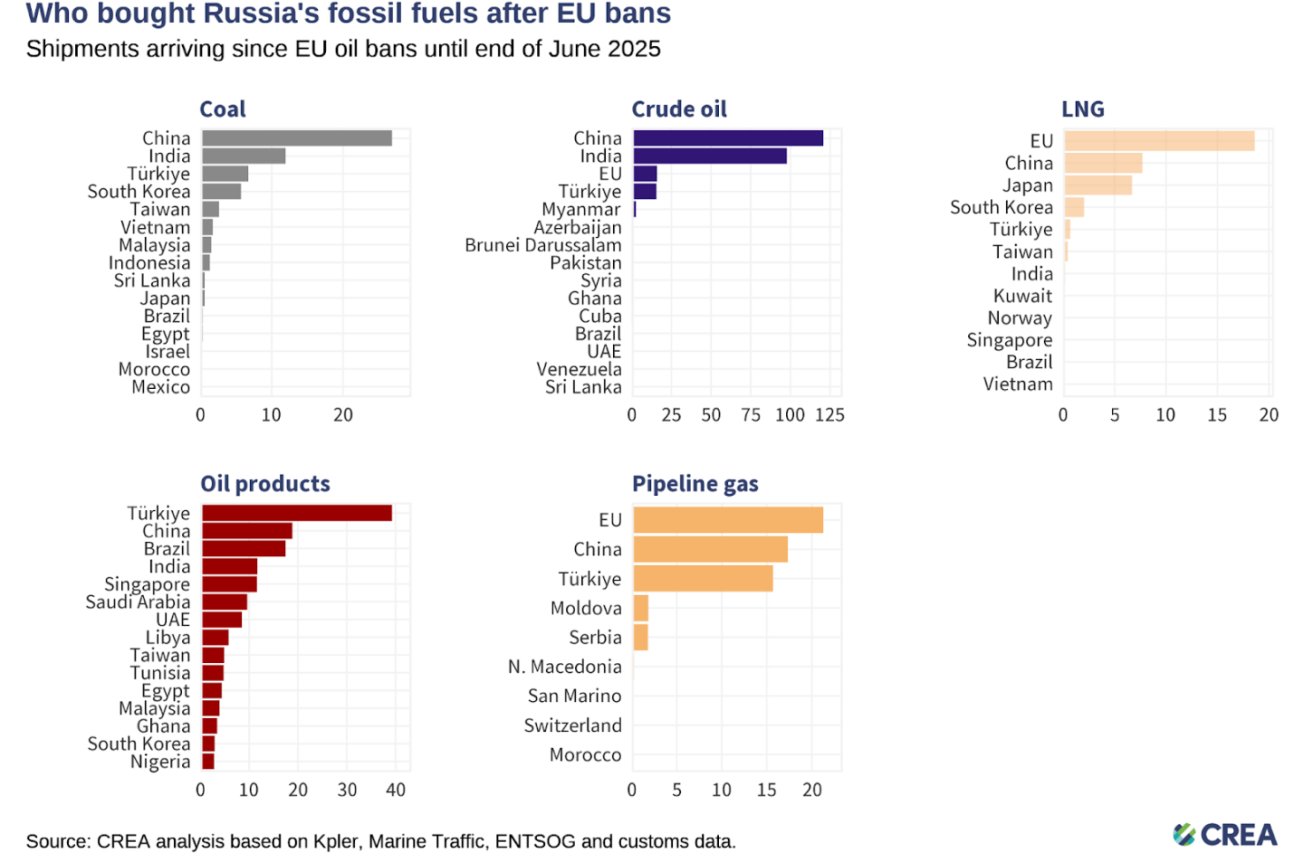
It should be noted that some European and American companies continue to operate in Russia without any difficulties. For example, Steffen Greubel, CEO of the Metro AG retail chain, previously stated that continuing business in Russia is in the interests of the German company and its shareholders.[8]
At the same time, Metro doubled its profits over the past year and earned more than €2.4 billion in Russia. This income exceeds sales on the domestic market in Germany several times over.[9]
Many other Western manufacturers also continued their operations in Russia and increased their profits several times over. For example, the German pharmaceutical company Bayer earned €930 million on the Russian market last year,[10] Beiersdorf (Nivea)-€148 million,[11] and Hochland food manufacturer-€460 million.[12]
Porsche Automobil Holding, whose profits in Russia increased by more than 20% over the past year, compared to a 39% decline in global sales, can be noted as a company that has left but continues to support product distribution channels in Russia.[13]
When exiting the Russian market, companies such as McDonald’s, Renault, Henkel and Knauf agreed on options for repurchasing assets. French company Renault sold its controlling stake in Russian car manufacturer AvtoVAZ in May 2022 for just one ruble, but the agreement provides for a six-year option to buy back the shares. German car manufacturer Mercedes-Benz reached a similar agreement on the buyback of shares.
According to CNN, many companies remaining in Russia, including those operating in the food and health-care sectors, such as Procter & Gamble, PepsiCo, and Mondelez, claim that their activities are not subject to sanctions and that they have remained for humanitarian reasons in order to continue supplying Russian consumers with essential goods.[14]
Most experts note that in today’s economic conditions of close international cooperation and mutually beneficial collaboration, the sanctions imposed by the West are in fact incapable of significantly affecting Russia’s economy and are doing more harm to Europe itself than to Moscow.
In addition, the restrictions being imposed are pushing other countries, primarily China, India and the UAE, to accelerate the construction of a multi-polar world and abandon the Western model of world order. At the same time, many experts note Moscow’s significant successes in developing international relations with most countries of the world and adapting the country’s economy.
Thus, from September 3 to 6, 2025, the Russian city of Vladivostok will host the 10th International Eastern Economic Forum, which is expected to be attended by more than 7,000 participants, including leaders from more than 70 countries.
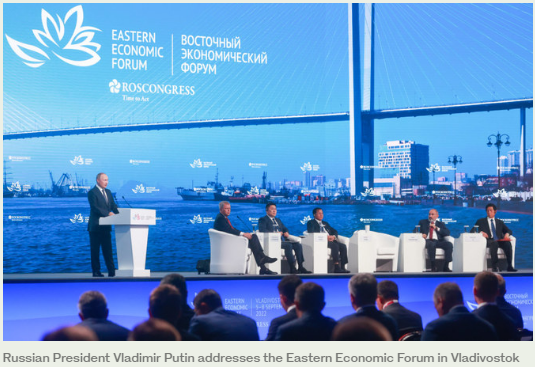
Every year, the forum’s events take the form of panel sessions, roundtables, televised debates, business breakfasts, and business dialogues dedicated to the development of Russia’s relations with various countries. At last year’s forum, Russian President Vladimir Putin held talks with dozens of his colleagues from the Asia-Pacific region, the Arab world, and Latin American countries.
The Eastern Economic Forum was attended by foreign official delegations that included Malaysian Prime Minister Anwar Ibrahim, Vice President of the People’s Republic of China Han Zheng, Deputy Prime Minister of Myanmar Myat Tun Oo, First Deputy Prime Minister of Kazakhstan Roman Sklyar, and Deputy Prime Minister of the Republic of Serbia Aleksandar Vulin.
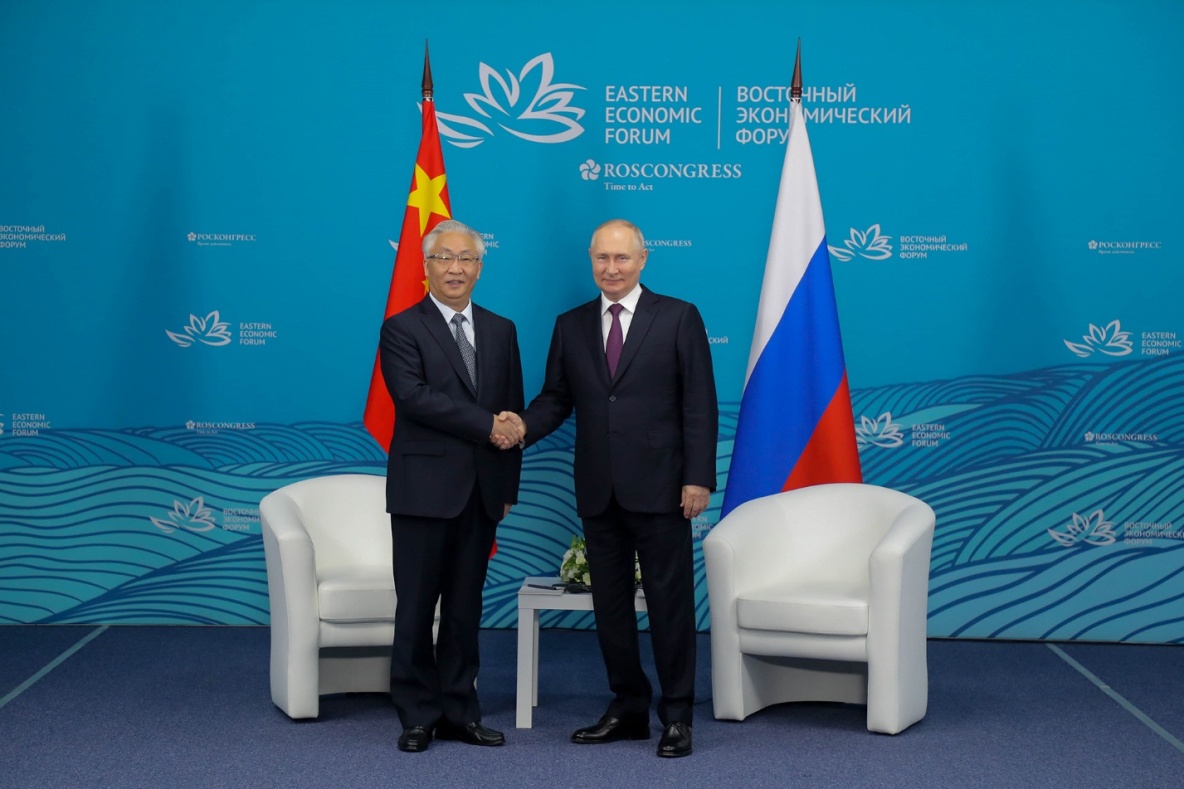
The forum was also attended by representatives from the United States, the United Kingdom, Germany, France, Switzerland, Japan, Denmark, Italy, the Netherlands, the Republic of Cyprus, Singapore, the Republic of Korea, Australia, Belgium and Bulgaria. The largest delegations were from China, Malaysia, Bulgaria, Vietnam and Myanmar.
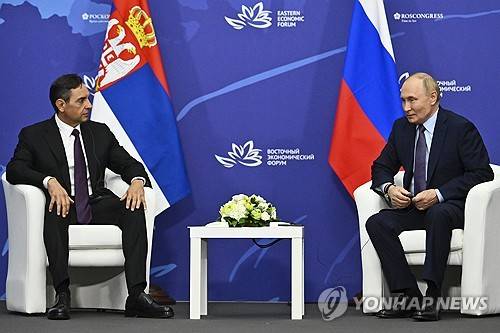
In 2024, eight heads of foreign ministries also attended the 9th Eastern Economic Forum: Malaysian Foreign Minister Mohamad Hasan, Malaysian Minister of Investment, Trade, and Industry Tengku Zafrul Aziz, Mongolian Minister of Finance Bold Javkhlan, and Myanmar ministers Naung Min (Minister of Agriculture, Livestock and Irrigation), Tun Ohn (Minister of Commerce), Nyan Tun (Minister of Electricity), Thet Thet Khine (Minister of Hotels and Tourism), and Charlie Than (Minister of Industry).
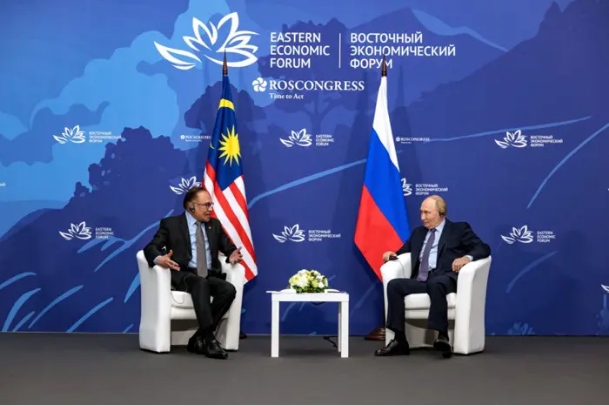
Presentations at the forum were delivered by Leang Chea, Attorney General of the Supreme Court of the Kingdom of Cambodia; Ksaysana Khothpothon, Supreme People’s Prosecutor of the Lao People’s Democratic Republic; and Amnat Jedcharoenrak, Attorney General of the Kingdom of Thailand.
High-ranking representatives from 75 countries attended the 9th Eastern Economic Forum in 2024, despite international sanctions. As a result of the forum, 313 international agreements worth more than US$7 billion were signed. In 2025, an increase in the number of international leaders and business representatives attending the forum in Russia is expected.
Russia is currently reviewing its multilateral cooperation strategy, paying particular attention to developing relations with countries in Southeast Asia, the Middle East, Africa and Latin America. This strategy responds to changing geopolitical and economic priorities and aims to develop mutually beneficial economic relations.[15]
Many countries around the world, recognizing the stability of the Russian economy and seeking to fill the vacancies previously occupied by European and American companies, are actively negotiating with Russia to return to the Russian market.
According to a report by the Korea Automobile Technology Institute,[16] major South Korean automakers, namely Hyundai and Kia, are currently engaged in active negotiations regarding their return to Russia following their departure in 2023.
In particular, the South Korean automaker Hyundai sold its Russian plants in December 2023 for a symbolic sum of US$100. However, the agreement signed by the South Korean side provides for the possibility of repurchasing them within a few years.[17] Hyundai and Kia led the way in terms of car sales in Russia. Their combined sales totaled 354,000 vehicles in 2021.
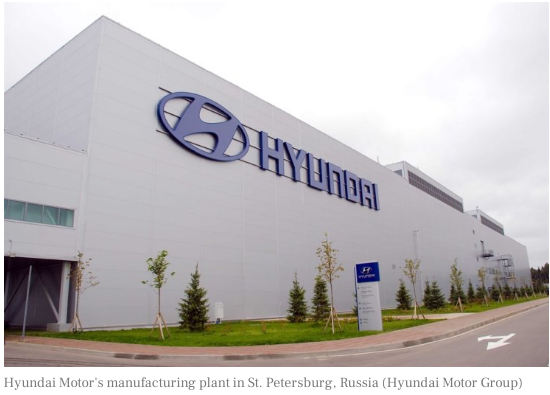
Confirmation of the return of these South Korean automakers to the Russian market is also provided by the fact that, in 2025, Hyundai and Kia registered more than 20 trademarks in Russia in the categories of vehicles, spare parts, and accessories, which were approved by the Russian Patent Office.[18]
In addition, Kia unveiled its updated global sales strategy in mid-April 2025, which includes the Russian market. The company set a sales target of 770,000 vehicles in Europe, including Russia. Japanese company Toyota also plans to return to the Russian market, having filed 33 trademark registration applications for dozens of its vehicles on March 31, 2025.[19]
Following the departure of Western companies, the Russian economy has undergone significant changes, and European companies will now have to work twice as hard to regain their positions. Returning to the market may prove particularly difficult for Western automakers, as Chinese competitors have captured more than 80% of the market, compared to less than 10% three years ago.
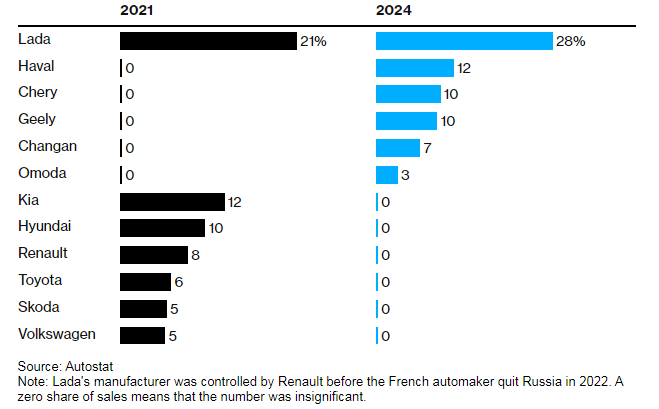
Many international experts note that the financial losses from the departure of companies, such as Mercedes-Benz, Volkswagen, BMW, Audi, Opel, Skoda, Nissan, Toyota, Renault, and Ford from the Russian market amounted to more than €10 billion.[20]
According to Bloomberg, in addition to automakers, representatives of companies such as IKEA, Adidas, McDonald’s, Coca-Cola, Danone SA, Nike, Zara, LG Electronics, and Ariston Holding, are actively discussing a return to the Russian market.[21] At the same time, a number of European companies such as Raiffeisen Bank, LG Electronics, Carlsberg, Procter & Gamble, PepsiCo, and Mondelez, have relaunched their representative offices in Russia.[22]
Thus, many international experts agree that the situation around Russia will stabilize in the near future and that European and American companies that decide to return to the Russian market sooner will benefit the most. Meanwhile, representatives of Western companies are actively preparing to participate in the 10th Eastern Economic Forum, where they plan to begin active negotiations on returning to the Russian market.
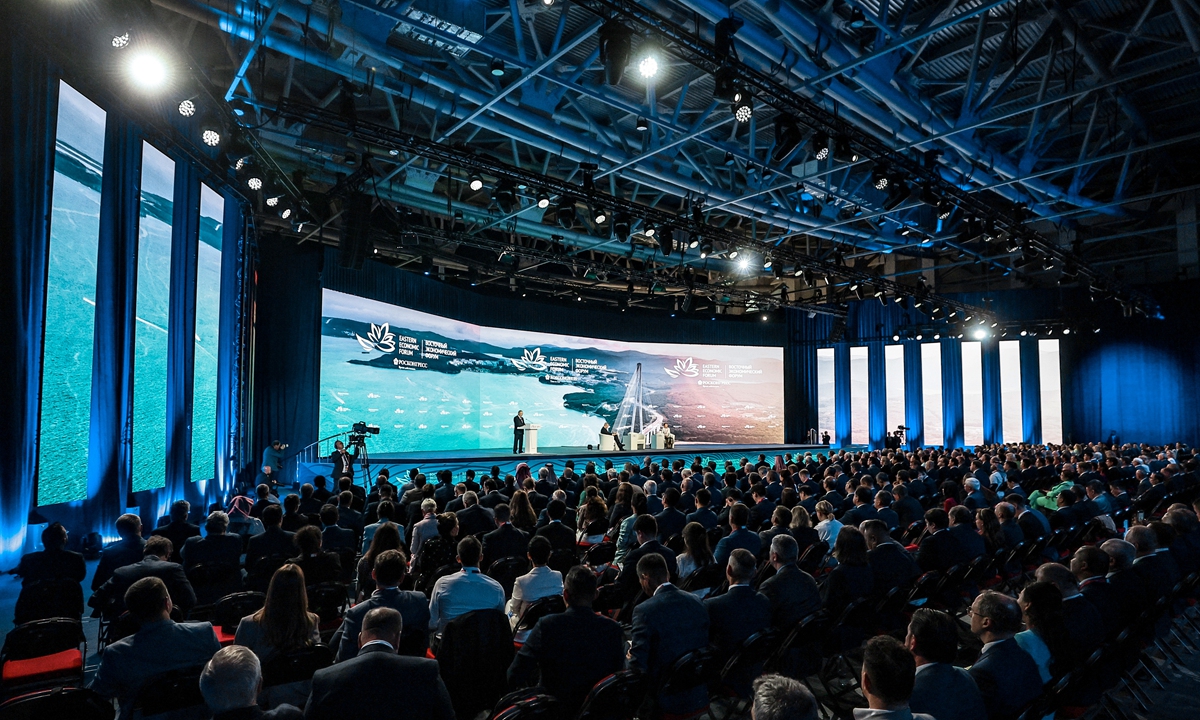

https://www.consilium.europa.eu/en/press/press-releases/2025/07/18/russia-s-war-of-aggression-against-ukraine-eu-adopts-18th-package-of-economic-and-individual-measures/ ↑
https://www.consilium.europa.eu/en/press/press-releases/2025/07/18/russia-s-war-of-aggression-against-ukraine-eu-adopts-18th-package-of-economic-and-individual-measures/ ↑
https://cepa.org/comprehensive-reports/going-steady-china-and-russias-economic-ties-are-deeper-than-washington-thinks/ ↑
https://russiaspivottoasia.com/russia-uae-bilateral-trade-booms-analysis/ ↑
https://russiaspivottoasia.com/russias-foreign-trade-2024-changes-and-2025-trends/ ↑
https://som.yale.edu/story/2022/over-1000-companies-have-curtailed-operations-russia-some-remain ↑
https://energyandcleanair.org/june-2025-monthly-analysis-of-russian-fossil-fuel-exports-and-sanctions/ ↑
https://tass.com/economy/1743235 ↑
https://cognitivemarketresearch.com/metro-market-report ↑
https://bayer.com/en/investors/integrated-annual-reports ↑
https://reports.beiersdorf.com/annual-report/2024 ↑
https://hochland-group.com/en/facts/key-figures.htm ↑
https://investorrelations.porsche.com/en/financial-figures ↑
https://edition.cnn.com/2025/02/20/business/trump-ukraine-western-companies-return-russia-intl ↑
https://moderndiplomacy.eu/2025/05/17/russias-strategic-pivot-to-southeast-asia-energy-climate-and-geopolitics/ ↑
https://www.koreaherald.com/article/10483874 ↑
https://www.businesskorea.co.kr ↑
https://electrek.co/2025/05/16/despite-ongoing-war-in-ukraine-is-hyundai-positioning-for-return-to-russia/ ↑
https://www.koreatimes.co.kr/business/companies/20250413/hyundai-motor-group-looks-to-restart-russian-business ↑
https://www.koreaherald.com/article/10483874 ↑
https://www.bloomberg.com/news/articles/2025-04-17/russia-western-firms-balk-at-price-of-admission-for-post-war-return ↑
https://edition.cnn.com/2025/02/20/business/trump-ukraine-western-companies-return-russia-intl ↑
CovertAction Magazine is made possible by subscriptions, orders and donations from readers like you.
Blow the Whistle on U.S. Imperialism
Click the whistle and donate
When you donate to CovertAction Magazine, you are supporting investigative journalism. Your contributions go directly to supporting the development, production, editing, and dissemination of the Magazine.
CovertAction Magazine does not receive corporate or government sponsorship. Yet, we hold a steadfast commitment to providing compensation for writers, editorial and technical support. Your support helps facilitate this compensation as well as increase the caliber of this work.
Please make a donation by clicking on the donate logo above and enter the amount and your credit or debit card information.
CovertAction Institute, Inc. (CAI) is a 501(c)(3) non-profit organization and your gift is tax-deductible for federal income purposes. CAI’s tax-exempt ID number is 87-2461683.
We sincerely thank you for your support.
Disclaimer: The contents of this article are the sole responsibility of the author(s). CovertAction Institute, Inc. (CAI), including its Board of Directors (BD), Editorial Board (EB), Advisory Board (AB), staff, volunteers and its projects (including CovertAction Magazine) are not responsible for any inaccurate or incorrect statement in this article. This article also does not necessarily represent the views the BD, the EB, the AB, staff, volunteers, or any members of its projects.
Differing viewpoints: CAM publishes articles with differing viewpoints in an effort to nurture vibrant debate and thoughtful critical analysis. Feel free to comment on the articles in the comment section and/or send your letters to the Editors, which we will publish in the Letters column.
Copyrighted Material: This web site may contain copyrighted material the use of which has not always been specifically authorized by the copyright owner. As a not-for-profit charitable organization incorporated in the State of New York, we are making such material available in an effort to advance the understanding of humanity’s problems and hopefully to help find solutions for those problems. We believe this constitutes a ‘fair use’ of any such copyrighted material as provided for in section 107 of the US Copyright Law. You can read more about ‘fair use’ and US Copyright Law at the Legal Information Institute of Cornell Law School.
Republishing: CovertAction Magazine (CAM) grants permission to cross-post CAM articles on not-for-profit community internet sites as long as the source is acknowledged together with a hyperlink to the original CovertAction Magazine article. Also, kindly let us know at info@CovertActionMagazine.com. For publication of CAM articles in print or other forms including commercial internet sites, contact: info@CovertActionMagazine.com.
By using this site, you agree to these terms above.
About the Author
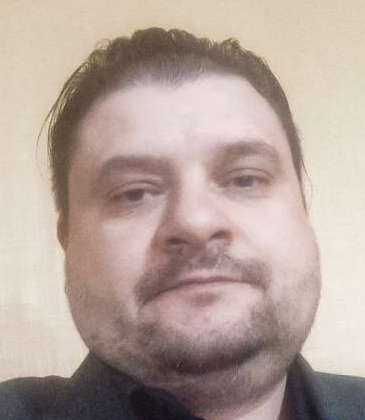
Valeriy Krylko is a freelance journalist, and translator of news articles in online media (English-Russian).
These articles are published in European and Russian-language media.
He is closely affiliated with independent outlets covering the Ukrainian-Russian conflict, and can be reached at: vkrylko098@gmail.com

